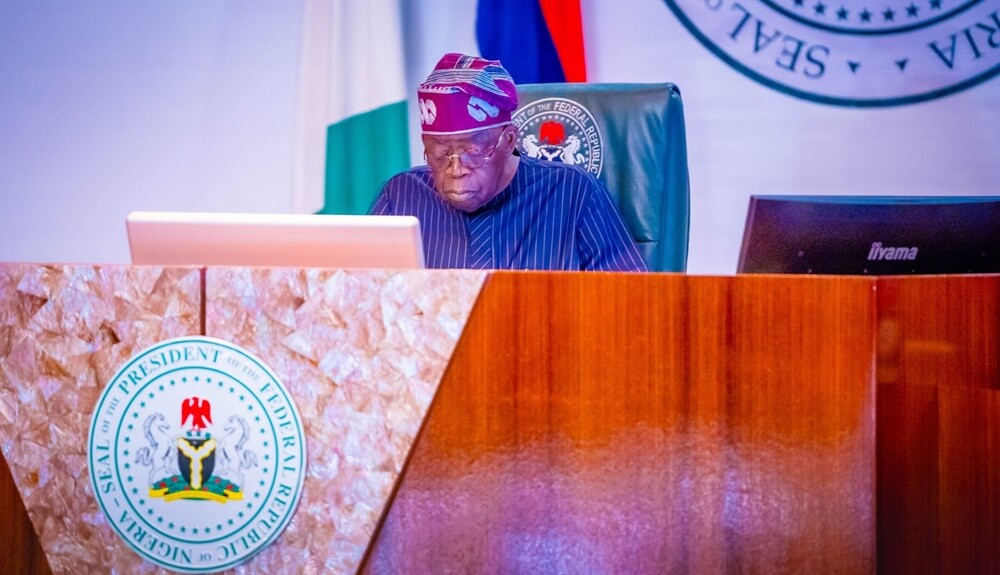By Augustine Ikenna Anwuchie
The Nigerian government, recently, in a series of intertwined events, has continued to garner ribbons of bad images instead of laurels of victory. Where others amass triumphs, it seems to weave a tapestry of tarnished reputation and leave behind unfortunate legacies that refuse to fade.
A few days ago, in a landmark ruling, a Canadian court ruling denied Douglas Anthony Egharevba asylum application citing his membership of PDP and APC which it found guilty of subverting democracy and spreading violence – acts considered as terrorism in Canadian law.
Media houses published headlines captioning the former ruling party PDP —considered one of the major oppositions and the ruling PDP—as terrorist organizations. The judgment, delivered by Justice Phuong T.V. Ngo of the Federal Court of Canada, dealt a heavy blow to Nigeria’s image, leaving the nation adrift—caught between the devil’s snare and the merciless sea.
The present APC government is not a stranger to controversies and scandals, often marketed by the recklessness of its officials and the corrupt, shady postures of the government itself.
Months ago, a serving female senator of the same party, at the Women in Parliament Session of the Inter-Parliamentary Union (IPU), during the United Nations Parliamentary Meeting in New York, publicly narrated her ordeal of sexual harassment. She revealed her six-month suspension, which she described as witch-hunting, and appealed to the international community and democratic institutions for support.
Again, Nigeria was cast beneath a shadowed spotlight where negative image festers around it like an open wound—rotten and bleeding beneath the gaze of the world.
The U.S. Embassy, in a public warning issued on X, cautioned against the extravagant spending habits of Nigerian politicians, specifically governors, while ordinary citizens continue to suffer. The embassy’s post referenced an African Report investigation titled “Nigerian ruling class splashes millions in government houses.” The report cited several extravagant expenditures by governors.
The report noted Oyo State governor Seyi Makinde, who authorized a ₦63.5 billion renovation of the Government House—sums running into tens of millions of U.S. dollars. Similarly, Gombe State governor, Inuwa Yahaya, committed ₦14.9 billion to a new residence and another ₦14.23 billion to a new House of Assembly complex.
Such stark splurges hover like storm clouds over the Tinubu-led APC government, which has appealed to Nigerians to endure inflation, fuel subsidy removal, and currency devaluation—likening these hardships to “labour pains.” Yet while the government demands austerity from its citizens, politicians and officials indulge in reckless and opulent spending.
These negative reviews, coupled with the lingering and dirty Chicago drug file and certificate forgery saga, further complicate Tinubu’s international image.
But how has the Federal Government reacted to its sinking profile?
In a desperate wave of image redemption, it struck quick and hasty measures aimed at whitewashing its reputation. Out of nowhere, it carried out a manhunt that led to the arrest of Mahmud Muhammad Usman of Ansaru and Mahmud al-Nigeri of the Mahmuda group—men who had been on the run for years.
They are accused of masterminding the 2022 Kuje prison break and other attacks on government infrastructure across Nigeria, and are also wanted internationally, according to National Security Adviser Nuhu Ribadu.
What surprised Nigerians, however, was how the arrest of these men—who once seemed invisible—easily coincided with the Canadian court judgment that labelled the ruling party a terrorist organization.
The APC government is no stranger to cameos. Early this August, during the visit of Ngozi Okonjo-Iweala, Director-General of the World Trade Organization, to President Tinubu, her statement that Tinubu and his team must be given credit for working hard to stabilize the economy was quickly flaunted by the ruling party as a souvenir of victory—an endorsement of reforms which have brought untold suffering to millions of Nigerians.
Critics argue that Okonjo-Iweala’s evaluation was politically motivated, tailored to align with the vision of the World Bank and IMF rather than the suffering of poor Nigerians. In his opinion piece in Daily Post, veteran journalist Reuben Abati remarked that she offered “measured praises rather than blunt criticism”—choosing diplomatic language over direct confrontation.
An editorial in Vanguard wondered whether her assessment reflected her role in the Western-controlled financial system, observing that it mirrored IMF and World Bank massaging, and warning that “stability is useless if it does not touch the masses suffering in economic pains.”
The African Democratic Congress accused the government of seeking political validation instead of addressing underlying social distress—cherry-picking Okonjo-Iweala’s comment on stabilization while ignoring her urgent call for growth and social protection.
For the APC, however, this endorsement from an international figure of Nigerian descent is a great win—a laurel in its stark and empty cupboard of achievements.
Nigeria today stands at a delicate threshold, where reputation falters under the weight of scandal, yet hope still whispers for redemption. Cosmetic arrests and borrowed praises may momentarily paint over the cracks, but they cannot rebuild a house whose foundation is weak.
True rebranding will not come from hastily staged gestures or international cameos. It will come when leadership embraces integrity over impunity, service over selfishness, and accountability over excuses.
Justice Phuong T.V. Ngo’s ruling may have scarred Nigeria’s global image, but scars can also be reminders—reminders that a nation once wounded can rise again, stronger and wiser, if it chooses reform over rebranding and sincerity over showmanship.
The challenge before President Tinubu’s government is clear: not to whitewash Nigeria’s image, but to renew its soul. Only then will the nation exchange its ribbons of disgrace for laurels of lasting honour.



